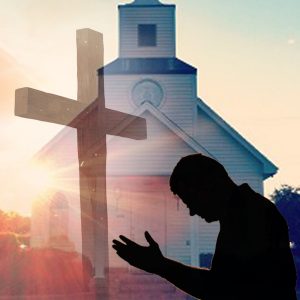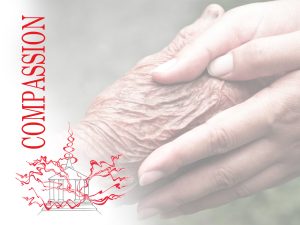
It is the Christmas season and almost everyone is talking about shopping and gifts. Society views Christmas as a big deal, it’s time off work, celebrations and family time. However, a lot of the big deal is driven by greed and commercialism. I wonder if Christmas would be celebrated the same way if we didn’t give gifts? If there was no commercial benefit in Christmas, would the malls and stores promote it so widely, if at all? Sadly, the modern-day Christmas celebration is a distraction of the Big deal that really took place 2000 years ago.
The first few verses of Paul’s letter to the Roman church is not your typical Christmas sermon text, but it is a concise record of why Christmas is such a big deal for us.
Paul introduces himself in verse 1, and in the original Greek, he used ten words to describe all that the Roman church needed to know about him. In English it is around eighteen words, “Paul, a servant of Christ Jesus, called to be an apostle, set apart for the gospel of God” Romans 1:1
Paul begins by calling himself a servant. The Greek word is Doulos, which means a humble slave or servant. Paul never exalted himself because he realized that he was a sinner saved by grace (see 1 Timothy 1:15). As followers of Jesus, we are all undeserving sinners, saved by grace, called to be servants of the King of Kings.
Next, Paul says that he was “called to be an apostle”. Jesus appeared to Paul on the road to Damascus and called him, changing his life completely (see Acts 9). He was called to be an apostle, which means an ambassador or messenger sent by God. Paul was sent by Jesus as his messenger to proclaim the Gospel to the world.
Paul then says that he was consecrated, “Set apart for the Gospel of God”. Paul was completely transformed from his old way of life and he was set on a new path. This is what it means to be a follower of Jesus Christ, to be set apart and placed on a new pathway, one that leads to eternal life for the glory of God. If you don’t know that you are set apart, you are probably not saved.
Paul was set apart for the Gospel. We sing carols at Christmas that speak about “glad tidings”, which means the good news. The good news that God reached down into this broken world. He lived amongst us, dying for our sins in order to provide the perfect sacrifice so that we could be set free from the burden of sin. Jesus was raised back to life on the third day and through him we can live an abundant life, a life of meaning and purpose for the glory of God (see Isaiah 9:2).
After Paul uses the first verse to introduce himself, he steps out of the way and introduces Jesus, the reason for his letter. He begins with the fact that the Old Testament has hundreds of prophecies declaring the arrival of Jesus, the messiah.
Jesus Christ coming into this world to live and die for our sins was not an afterthought or a “plan b” by God. This gospel message was planned and originated before the foundation of the world. Jesus came with a primary purpose, to live a perfect sinless life so that he could offer his life as a sacrifice for the sins of the world. Jesus, the creator God, who spoke all of creation into existence, stooped down, and humbled himself for the sake of his creation.
Donald Grey Barnhouse said, “love that gives upward is worship, love that goes outward is affection, love that stoops is grace.”
This is overwhelming because we have no concept of the greatness of God. We speak about it, we sing “How Great is our God”, but we really have no idea. Moses had a unique relationship with God and in Exodus 33, we read how Moses asked God to show him His glory. God knew it would be too much for Moses, so he sheltered Moses inside the cleft of a rock and then covered him with His hand while God let His goodness pass by Moses.
In the next chapter we read that Moses came down the mountain with the stone tablets of the law and the people are terrified of him because his face is shining. Moses spent time with God, and he radiated the glory of God.
Because of Christmas, the cross and the empty tomb, we can come into the presence of God and speak to God, coming into His presence through Jesus Christ. This is prayer and this is why prayer is such an amazing privilege and source of power. Do you radiate the presence of God because you spend time daily in the presence of the most Holy God? Those around us should see the effects on our lives as a result of our prayer life.
Jesus came down from Heaven to be born in a manger in Bethlehem. This amazing God stoops down and provides a way for us to be saved and then in verse 5 Paul continues, “through whom we have received grace and apostleship to bring about the obedience of faith for the sake of his name among all the nations,”
We are not saved to simply sit back and live our “best lives now”. We are saved by God in order to be a witness for him, to proclaim this good news to all the world. When you are saved and filled with the Holy Spirit, you are equipped with power from Heaven, and a new purpose in life (see Ephesians 2:10).
The final phrase of verse 5 is the purpose of it all, for the sake of His name, for the glory of God. All the redemptive story of Christmas and the Gospel focuses on the glory of God.
Christmas is a big deal, but the big deal is that God came down to His creation so that we could be saved from an eternity separated from God and that when we are saved, we are called to share this good news to a lost and dying world.
Oswald Chambers wrote: “There is only one relationship that matters, and that is your personal relationship to a personal Redeemer and Lord. Let everything else go, but maintain that at all costs, and God will fulfil His purpose through your life. One individual life may be of priceless value to God’s purpose, and yours may be that life.”
Christmas is a bid deal, and it is the time of the year when everyone around us is celebrating the birth of our savior. What a tremendous opportunity we have to introduce people to a personal relationship with him.
Who are you going to tell this week about your relationship with the King of Kings?











 Prayer is a discipline and the most incredible privilege we have.
Prayer is a discipline and the most incredible privilege we have.